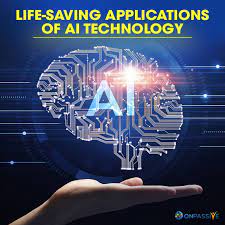Artificial intelligence (AI) is revolutionizing the business world, offering unprecedented opportunities for growth, efficiency, and customer engagement. As AI technologies advance, understanding how to implement and leverage them within a business context is crucial for staying competitive. This article provides insights into the transformative power of AI across various business functions and offers a strategic guide for integrating AI into your operations.
Key Takeaways
- AI in business spans from enhancing customer experiences to optimizing operations and driving growth.
- Small businesses can use AI for task automation, customer interactions, and personalized experiences.
- Identifying processes that can benefit from AI, such as customer service and data analysis, is key to successful implementation.
- AI tools for marketers include content creation, SEO, data-driven analytics, and lead generation enhancements.
- AI contributes to profitability by improving efficiency, decision-making, and offering tailored customer experiences.
Understanding AI and Its Business Implications

Defining Artificial Intelligence in the Business Context
Artificial intelligence (AI) in the business realm is a transformative force, enabling machines to perform tasks that typically require human intelligence. This includes learning from data, solving complex problems, and making decisions that can lead to significant improvements in efficiency and innovation.
In practice, AI applications in business are diverse, ranging from customer support to cybersecurity, and from HR and recruitment to marketing and sales. Here’s a brief overview of how AI is being utilized across different business functions:
- Customer Support: Leveraging chatbots and virtual assistants to provide 24/7 service.
- Cybersecurity: Using AI to detect and respond to security threats in real-time.
- HR and Recruitment: Streamlining the hiring process with AI-driven applicant tracking systems.
- Marketing and Sales: Enhancing customer engagement through personalized recommendations and predictive analytics.
The potential of AI in business lies in its ability to extract actionable insights, automate complex processes, and continuously learn from interactions and outcomes, thus reshaping industries.
AI is not just about sophisticated algorithms and computational power; it’s about the simulation of human intelligence in machines that can think, learn, and act. The integration of AI into business operations is not a distant future—it’s a current reality that is driving growth and innovation across all sectors.
The Impact of AI on Business Operations
The integration of artificial intelligence (AI) into business operations marks a significant shift in how companies approach efficiency and innovation. AI’s ability to automate repetitive tasks frees up human employees to focus on more complex and creative work, leading to a more dynamic and productive workforce.
- Increased efficiency: AI systems can process and analyze data at a speed unattainable by humans, leading to faster decision-making and streamlined processes.
- Cost reduction: By automating tasks, AI helps reduce labor costs and minimizes human error, which can be costly.
- Scalability: AI can handle an increasing amount of work without the need to proportionally increase staff.
The strategic implementation of AI can be a game-changer for businesses, enabling them to operate with unprecedented agility and precision.
The transformative power of AI is not limited to large corporations; small businesses also stand to benefit greatly. By adopting AI, even smaller enterprises can compete with larger ones by enhancing their operational capabilities and customer experiences.
Case Studies: AI Transforming Industries
The integration of artificial intelligence is revolutionizing industries, showcasing a breadth of success stories that highlight its transformative impact. Small businesses, in particular, are leveraging AI to optimize operations and enhance customer interactions, which are crucial for unlocking new growth avenues.
The journey to AI integration is marked by strategic tool selection and a commitment to phased implementation. These steps are vital for businesses to effectively navigate the initial stages of AI adoption, ensuring efficiency and setting the stage for more advanced applications.
- Personalizing customer experiences
- Optimizing supply chains
- Predicting market trends
AI’s ability to process and learn from data rapidly is not just a technological advancement; it’s a business imperative. Its applications are diverse, ranging from customer service chatbots to predictive maintenance and intelligent analytics for strategic decision-making. The following table illustrates the areas where AI has made significant inroads:
| Industry | Application | Outcome |
|---|---|---|
| Retail | Chatbots for customer service | Improved customer satisfaction |
| Manufacturing | Predictive maintenance | Reduced downtime |
| Healthcare | Diagnostic algorithms | Enhanced patient care |
| Finance | Fraud detection systems | Increased security |
Embracing AI is not merely about adopting new technology; it’s about transforming the very fabric of business operations to thrive in a digital world.
Strategies for Implementing AI in Your Business

Identifying AI Opportunities in Your Operations
To harness the full potential of AI in your business, it’s crucial to identify the right opportunities within your operations. Start by pinpointing areas that are ripe for improvement, such as customer service, data analysis, inventory management, or financial operations. These are domains where AI can significantly boost efficiency and effectiveness.
When considering AI integration, focus on processes that are currently bogged down by inefficiency or outdated methods. This strategic approach ensures that AI solutions are not just implemented, but are transformative.
AI presents a plethora of possibilities, from chatbots to data extraction and research assistance. The challenge lies in choosing the most impactful tools for your business. To aid in this decision-making process, consider the following aspects:
- The potential to scale operations and enhance competitiveness.
- The ability to process and learn from data rapidly leads to cost reductions and innovation.
- The application of AI across various domains, such as advanced customer service and intelligent analytics for strategic decision-making,.
Planning and Executing an AI Integration Project
The journey of integrating artificial intelligence into business operations is an ongoing process that requires careful planning and execution. To ensure a successful AI integration project, consider the following steps:
- Assess your business needs and determine where AI can add the most value.
- Select the right AI tools that align with your business goals and can scale with your operations.
- Prepare your data for AI processing, ensuring it is clean, organized, and accessible.
- Build or hire an AI team with the necessary skills to develop and maintain your AI systems.
Embrace the AI revolution with strategic planning and continuous learning to unlock efficiency and innovation.
Remember to integrate AI solutions that can easily integrate with your existing systems to minimize disruption. Additionally, investing in staff training is crucial to maximizing the benefits of your new AI tools. By following these steps, you can lead your business towards a smarter and more efficient future.
Measuring the Success of AI Implementation
Once AI is integrated into your business operations, it’s crucial to measure its success to ensure that the investment is yielding the desired results. Key performance indicators (KPIs) should be established prior to implementation, tailored to the specific goals of your AI project. These could range from increased efficiency and reduced operational costs to improved customer satisfaction and revenue growth.
To effectively measure success, consider the following metrics:
- Efficiency gains: time saved on tasks previously performed manually.
- Accuracy improvements: reduction in errors or increase in precision of tasks.
- Customer satisfaction: changes in customer feedback and satisfaction scores.
- Financial metrics: impact on revenue, cost savings, and return on investment (ROI).
It is essential to review these metrics regularly and adjust your AI strategy accordingly to maximize the benefits and address any challenges that arise.
Remember, the value of AI is not just in the immediate gains but also in the long-term transformation and scalability it brings to your business. Continuous monitoring and refinement of your AI systems are key to sustaining success and staying ahead in the competitive landscape.
Leveraging AI for Enhanced Customer Experiences

Using AI to Gain Customer Insights
Leveraging AI-powered analytics can enable your business to understand your customers better by unlocking quick access to large sets of data. This data can generate predictions and customize product and service recommendations that are specific to individual customer needs. With the power of AI, businesses can now map out the customer journey, analyzing touchpoints and interactions across multiple channels to identify pain points and opportunities for improvement.
AI technology not only provides insights into customer behavior and preferences but also empowers companies to build hyper-curated recommendations for every customer, enhancing brand engagement and loyalty.
For instance, consider the following applications of AI in gaining customer insights:
- Analyzing customer data to understand behavior and preferences.
- Utilizing chatbots for handling simple customer support queries.
- Implementing marketing automation to streamline campaigns.
Small businesses, in particular, can benefit from AI’s ability to sort through large volumes of data to identify trends, preferences, and buying patterns. These insights are vital for shaping marketing strategies, optimizing product offerings, and making informed decisions that drive growth.
AI Tools for Personalization and Engagement
In the realm of customer engagement, AI tools are revolutionizing personalization. By harnessing the power of AI, businesses can analyze vast amounts of customer data to tailor marketing efforts and enhance interactions. This not only improves the customer experience but also drives significant returns on investment.
- Content suggestion tools leverage AI to streamline the discovery of engaging topics, ensuring your audience receives the most relevant content.
- AI-powered analytics provide deep insights into customer behavior, allowing for predictive personalization that resonates with individual preferences.
Leveraging AI for personalization means businesses can offer hyper-curated recommendations, fostering stronger brand loyalty and customer satisfaction.
Dynamic surveys and predictive analytics are just the tip of the iceberg when it comes to AI’s capabilities in improving the customer experience. As we look to 2024, we can expect AI to continue to provide innovative ways to engage and understand customers, from adaptive feedback mechanisms to trend analysis that anticipates customer needs.
Improving Customer Support with AI
In the realm of customer support, AI is a game-changer, offering round-the-clock service and enhancing the efficiency of operations. By integrating AI-powered chatbots that utilize natural language processing (NLP), businesses can provide immediate, natural language responses to a wide array of customer inquiries. This not only improves response times but also significantly boosts customer satisfaction.
AI doesn’t just automate; it augments the capabilities of human customer service representatives. Intelligent assistants can take on routine tasks such as searching for information, summarizing calls, and analyzing transcripts. This allows customer support managers to pinpoint common issues, identify areas needing improvement, and refine their products and services accordingly.
AI-driven customer support tools are transforming the landscape of customer interactions, ensuring that every customer receives timely and consistent support. By providing crucial consumer context and actionable insights, AI enables a seamless transition during client handoffs and empowers agents with guidance for more effective resolutions.
For businesses considering AI for customer support, the following points are essential:
- Implement AI chatbots for 24/7 customer query handling.
- Use AI to analyze customer interactions for insights.
- Employ AI to assist human agents with information retrieval and decision-making.
- Continuously refine AI tools based on customer feedback and interaction data.
AI Tools for Marketers

AI in Content Creation and SEO
The integration of AI into content creation and SEO has revolutionized the way marketers approach digital content. AI-powered tools are now indispensable for crafting compelling content that resonates with both audiences and search engines. These tools assist in various tasks, from generating blog posts and social media updates to optimizing ad placements for maximum relevance and engagement.
For SEO, while generative AI tools like SEO Core AI and Bramework offer keyword suggestions and content ideas, they fall short of the comprehensive analysis provided by platforms like Ahrefs and Semrush. However, the use of AI in content marketing is undeniable, with tools such as Surfer SEO enhancing search performance through its multi-featured capabilities.
AI is not just a tool for automation; it’s a partner in creativity and efficiency, enabling marketers to produce more with less and to tailor content that truly engages.
Despite some limitations, AI’s role in content creation is growing, with generative AI tools now responsible for a significant portion of digital content. Brands are leveraging these tools for a variety of content needs, often achieving cost savings by streamlining their content marketing efforts.
Data-Driven Marketing with AI Analytics
In the realm of marketing analytics, AI is a game-changer, providing businesses with the ability to process and analyze vast amounts of data with unprecedented speed and accuracy. By harnessing the power of AI, companies can uncover deep insights into customer behavior, preferences, and trends, which can then be translated into more effective marketing strategies.
AI in Marketing Analytics: 5 Ways to Sharpen Your Insights
The use of AI in marketing analytics allows for a more granular understanding of the customer journey. It enables the creation of highly personalized marketing campaigns that resonate with individual customers, leading to increased engagement and conversion rates. Here are some key applications of AI in marketing analytics:
- Marketing Automation: Streamline repetitive tasks such as email campaigns and ad targeting to boost efficiency.
- Predictive Analytics: Anticipate market trends and customer needs to inform strategic decision-making.
- Fraud Detection: Employ AI algorithms to detect and prevent fraudulent activities, protecting both businesses and customers.
- Process Automation: Optimize various marketing processes to save time and resources.
By integrating AI analytics into your marketing efforts, you can not only enhance the customer experience but also achieve a significant competitive advantage in the marketplace.
Enhancing Lead Generation with AI
In the realm of lead generation, AI has become an indispensable tool for businesses seeking to optimize their marketing strategies and achieve higher conversion rates. By leveraging AI-powered tools, companies can analyze vast amounts of data to identify high-quality leads and tailor their outreach efforts accordingly.
- AI algorithms can predict buying habits and preferences, allowing for targeted and personalized communication.
- Tools like HubSpot utilize AI to segment audiences and enhance email marketing campaigns, leading to increased open rates and conversions.
- Generative AI applications, when trained on your company’s data, can produce content that not only ranks well on search engines but also effectively converts visitors into leads.
By integrating AI into your lead generation process, you can ensure that your marketing efforts are not only more efficient but also more effective, ultimately boosting your revenue.
The use of AI in marketing not only provides personalized experiences but also enables retargeting of audiences at the most opportune moments, reducing irritation and increasing the likelihood of successful conversions. Marketers can now send personalized ads and tailor content marketing to their brand’s voice and style, thanks to the capabilities of AI such as behavioral analysis, machine learning, and pattern recognition.
FAQs About Utilizing AI for Business Growth

How can AI automate and streamline business tasks?
Artificial intelligence (AI) is revolutionizing the way businesses operate by automating and streamlining a wide range of tasks. AI tools are designed to handle repetitive and time-consuming activities, freeing up human resources for more complex and strategic work. This shift not only enhances efficiency but also contributes to a healthier bottom line.
For instance, AI-driven solutions like robotic process automation (RPA) can take over mundane tasks such as data entry, appointment scheduling, and document management. By implementing these tools, businesses can experience a significant reduction in labor costs and an increase in operational efficiency.
AI’s capability to automate foundational tasks makes it an accessible starting point for businesses looking to embark on their AI journey.
Identifying areas within your business that could benefit from automation is the first step. Virtual assistant tools, for example, can manage bookkeeping, time management, and even customer information input. The integration of AI not only expedites processes but also enhances productivity across various sectors, including marketing, healthcare, education, and logistics.
The Role of AI in Customer Interaction and Personalization
In the realm of customer interaction and personalization, AI is revolutionizing the way businesses understand and engage with their customers. By leveraging AI’s ability to analyze vast amounts of data, companies can now offer hyper-personalized experiences that were once impossible. This not only enhances customer satisfaction but also drives loyalty and increases the overall value of customer relationships.
AI’s advanced analytics and machine learning capabilities enable businesses to predict customer preferences and deliver tailored marketing campaigns. This leads to more effective customer engagement and a significant improvement in return on investment (ROI).
Here’s how AI can be integrated into customer interaction strategies:
- Customer Insights: Utilizing AI to dissect customer data provides valuable insights into behavior and preferences, informing product development and marketing.
- Chatbots and Virtual Assistants: Implementing chatbots for basic support queries and virtual assistants for routine tasks improves efficiency and customer satisfaction.
- Marketing Automation: AI-driven marketing automation allows for the creation of highly targeted campaigns that resonate with individual customers.
By incorporating AI into customer engagement strategies, businesses can stand out in a crowded market by delivering exceptional experiences. The trend towards AI-driven personalization is not just a fleeting phenomenon but a strategic imperative for companies looking to thrive in the modern digital landscape.
Understanding AI’s Contribution to Profitability
The integration of artificial intelligence (AI) into business models has become a cornerstone for achieving enhanced profitability. AI boosts profitability by streamlining operations and fostering innovation, which translates into cost savings and increased revenue. For instance, AI-driven analytics empower businesses to make data-driven decisions, optimizing strategies for market penetration and customer retention.
- AI enhances operational efficiency by automating routine tasks, freeing up human resources for more strategic work.
- Improved customer engagement is achieved through personalized experiences, driven by AI’s ability to analyze vast amounts of data.
- Data-driven decision-making is facilitated by AI, ensuring that businesses stay ahead of market trends and customer needs.
- Personalized marketing efforts are more effective and less costly, thanks to AI’s targeted approach.
By leveraging AI, businesses not only streamline their processes but also create new opportunities for revenue generation. The indirect benefits, such as keeping workers happy by automating mundane tasks, contribute to a more dynamic and productive work environment.
Conclusion
As we’ve explored throughout this article, AI presents a transformative opportunity for businesses of all sizes. From enhancing customer insights to automating routine tasks, AI can drive efficiency, innovation, and profitability. Small businesses, in particular, can leverage AI to compete with larger entities by optimizing operations and offering personalized customer experiences. The key to successful AI implementation lies in identifying the right opportunities, planning strategically, and continuously learning about AI’s evolving capabilities. By embracing AI, businesses can not only streamline their processes but also unlock new avenues for growth and stay competitive in the ever-changing digital landscape.
FAQs About Utilizing AI for Business Growth
How can small businesses use AI?
Small businesses can use AI to gain customer insights, automate tasks such as bookkeeping, enhance customer interactions with AI-powered chatbots, and improve marketing efforts through on-site SEO and personalized email campaigns.
What are the applications of AI in business?
AI applications in business range from customer support, cybersecurity, HR, and recruitment to marketing and sales. AI helps in optimizing business processes, engaging customers, and driving growth.
How do you leverage AI for business growth?
Leverage AI for business growth by automating repetitive tasks, engaging customers with natural language processing tools, and offering personalized experiences through AI-powered analytics and insights.
How does AI increase profitability?
AI increases profitability by optimizing operations for efficiency, reducing costs, enhancing customer experiences, improving decision-making through predictive analytics, and creating new revenue streams.
What is the use of artificial intelligence in business intelligence?
Artificial intelligence in business intelligence involves using AI to analyze data, provide actionable insights, forecast trends, and support strategic decision-making, ultimately leading to smarter business operations.
What should businesses consider when implementing AI?
Businesses should assess areas in their operations that can benefit from AI, such as customer service and data analysis, evaluate AI solutions, plan strategically, prepare data, and build a skilled AI team.
Also read your articles on Space Stations—What Technology Is Used In Them? How Do They Work? | Set- Up Google Search Console To Explode Your Website’s Growth | How To Design A Website?








Your point of view caught my eye and was very interesting. Thanks. I have a question for you.
Thanks for sharing. I read many of your blog posts, cool, your blog is very good.
Thank you for your sharing. I am worried that I lack creative ideas. It is your article that makes me full of hope. Thank you. But, I have a question, can you help me?
Can you be more specific about the content of your article? After reading it, I still have some doubts. Hope you can help me.
Thanks for sharing. I read many of your blog posts, cool, your blog is very good.